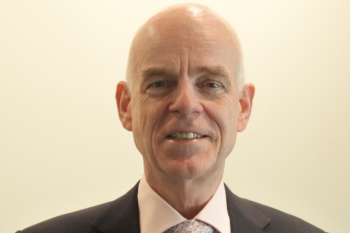Events
Promoting Exchanges in Innovative Technology
—Japan and the Netherlands have a long history of more than 4 centuries of exchange. How have you witnessed the recent development of our bilateral ties?
The recent development of our relationship with Japan is positive. Following our king and queen’s visit to Japan in 2014, Prime Minister Rutte visited Japan in 2015, when the two countries concluded a “Strategic Partnership” agreement to improve the economic, political, and cultural ties. Most recently, Prime Minister Abe visited the Netherlands in January this year, and I attended the visit also. The relationship between the prime ministers is very good. And we are extremely pleased that Japan has invited the Netherlands to participate the G20 Osaka Summit and Ministerial Meetings. So the two countries are in a very positive moment in our bilateral relations which are getting increasingly closer, and we are very optimistic about our relationship.
— As Ambassador to Japan, what is your priority agenda for further deepening the Japan – Netherlands relations?
I have high expectations of the Economic Partnership Agreement between the European Union and Japan which will increase the trade flows between the Netherlands and Japan. Also, we aim to have innovation- and technology-related R&D exchange with Japan. The Netherlands is a very innovative country, and has many startup companies with new products. There is the upcoming Nano Tech 2019 trade fair at the end of January, and His Royal Highness Prince Constantijn will visit from the Netherlands to promote the exchange between the two countries in this field of innovation. We are also interested in hydrogen as a source of energy and look forward to having technological exchanges with Japan which is quite advanced in the development of hydrogen technology such as in automobiles. In addition, we had a very intensive cultural exchange with Kyushu in the last two years. In particular, we participated in an interesting project, in which we brought young and creative Dutch designers to ceramics workshops in Arita to collaborate on new products with the craftspeople there.
— Prime Minister Rutte’s third cabinet was formed in October 2017, after seven months of coalition negotiations. Would you overview the recent political and economic situation of the Netherlands?
The history of the Netherlands’ democracy is old and stable. Mr. Rutte, now in his 6th year, is one of the longest-serving prime ministers in Europe. He’s capable and experienced, and therefore there is hardly any cause for concern. The economy of our country is favorable, and we are at our maximum economic performance. Within the EU, the Netherlands has the highest annual growth of nearly 3% on the average. On the other hand, one of our economic challenges is a green economy to address the climate change. All the municipalities have a plan to cut the use of natural gas which is currently the prime source of energy. But the transition cost is extremely high, and that is a main discussion point at the parliament. The media’s criticism is that, even if the Netherlands accomplish the ambitious plan, its total impact on the climate of the world would be miniscule. However, someone has to do it; and if a prosperous country like the Netherlands doesn’t do it, who does?
— How does Brexit affect the Netherlands?
Overall, we will be negatively impacted. The United Kingdom is very important as our third largest trading partner in the EU. If there were a no-deal Brexit, a huge volume of our export to the UK will be affected. The UK and the Netherlands are mostly in the same corner as far as the policies for the EU are concerned. The UK is like our big brother, and if we lose it, we’ll have to find new partners to defend our position. We see quite an increase in the UK companies that have transferred their offices to the Netherlands and made new investments, but that does not outweigh the negative impact of our trade. It seems likely that it is going to be a hard Brexit, and that means we’ll initially have chaos. The UK is completely split in opinions, and it is difficult for us to see where they want to go. I’m quite disappointed with Brexit.
— Netherlands is one of the six founding countries of the EEC (later the EU). There are growing concerns in Europe about Brexit and anti-immigration sentiment. What is the Ambassador’s view on the unity of the EU?
The EU has produced fantastic economic results. We are prosperous and stable, and are the anchor of the global economic stability. On the other hand, the EU is a collection of 28 countries, and requires serious efforts to coordinate policies. All the countries have strong opinions on various subjects, and it is very difficult for them to come to a common position in a short time. Our progress is not as strong in the political process as in the area of economy. In the financial aspect, there is a split in the view between the north that emphasizes fiscal restraint and the south that expects more financial support from the EU. Our stance is in line with the north. The immigration is a difficult issue in the EU, and there are a number of countries that refuse to cooperate or accept refugees. The Netherlands is open to immigrants and accept 30,000 of them every year. At the height of the Syrian refugee crisis, we took in about 100,000, and that put so much pressure on our society; but our immigration rate is back to normal.
(Interview by Shu Tamaru, FEC Counsellor)
